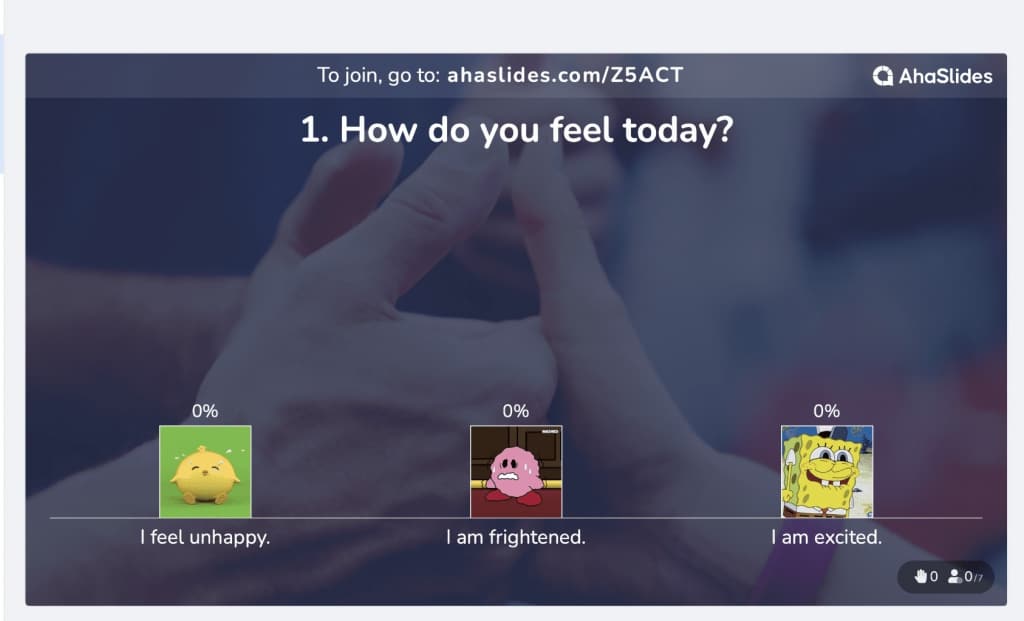Wondering how to ask someone if they are ok? In a world where everyone so quickly gets anxiety and depression, it's significant to reach out to them and show our concern and ask them whether they're doing okay.
A simple "Are you okay?" can be a powerful icebreaker in meetings, classrooms, or gatherings. It shows you care about well-being, fostering positive relationships and enhancing engagement.
Let's explore some effective ways of asking someone if they are ok, and how to do it in the most optimal way that leaves an optimistic impact.

Table of Contents
- "How are you?" or "Are you OK?"
- Avoid assumptions or prying
- Follow-ups and offer support
- Every day chat is important
- How to ask someone if they are okay over text
- How to ask someone if they are ok without asking
- How to ask someone if they are ok in a fun way
- Bottom Line
"How are you?" or "Are you OK?"
🎊 "How are you?" or "Are you OK?" (Simple but effective question)One effective way to begin the chat is by simply asking, "How are you? or Are you OK". This question opens the door for them to express how they're feeling without feeling pressured to disclose too much. When they respond, it's essential to actively listen to what they're saying, both through their words and their body language.
Sometimes, people may not feel comfortable talking about their feelings, or they may try to downplay their struggles. In these situations, it's important to validate their feelings by saying things like, "It sounds like you've been going through a tough time", or "I can imagine how stressful that must be for you". By doing so, you're letting them know that you hear them and that their feelings are valid.

Avoid assumptions or prying
How to ask someone if they are okay without prying? It's essential to approach the conversation with empathy and understanding. People may be hesitant to speak out about their struggles, so creating a safe and pleasant space where they feel free to share their opinions and feelings is essential.
While it's your natural desire to offer advice or resolve, letting them lead the conversation and share what's on their mind is more reasonable.
You should offer support and encouragement rather than trying to fix their problems. In addition, if they don't seem comfortable talking about their struggles, don't push them to share more. Respect their boundaries and give them space if needed.
Follow-ups and offer support
How to ask someone if they are ok in the next several days? If you're concerned about someone's well-being, checking in with them regularly is essential. Follow up with them in a few days or weeks to see how they're doing and tell them you're still there for them.
You can also offer resources or suggest they seek professional help. Encouraging someone to seek therapy or counselling can significantly improve their mental health and well-being.
Everyday chat is important
How to ask a friend if everything is ok? Everyday chat may seem like nothing much, but it can be a great way to build rapport with your friend and create a comfortable space where they feel safe sharing their thoughts and feelings. The trick to beginning a conversation with your friend is to leverage some lighthearted small talk, such as asking how their day is going or sharing a funny story. This can help establish a comfortable and relaxed atmosphere.
How to ask someone if they are okay over text
Remember, sometimes it's easier for people to open up about their struggles through text rather than in person. You can make a start with something like, "Hey, I noticed your post and wanted to check in. How are you doing?" This simple gesture shows that you care and are there for them.
Furthermore, don't be afraid to offer support and resources like, "If you ever need to vent or talk, I'm here for you," or "Have you considered talking to a therapist about this?".
How to ask someone if they are ok without asking
If you want to ask someone if they're okay without directly asking them, you can think of sharing something personal with them; you might inspire them to open up as well. You could talk about a problem you've faced recently or something weighing on your mind.
Another excellent way to do this is having a day out together, such as grabbing coffee or walking. This can give you an excellent opportunity to spend time together and see how they're doing in a more relaxed atmosphere.
How to ask someone if they are ok in a fun way
Use virtual polls from AhaSlides and send them to your friend circle or social networks. With an appealing and friendly questionnaire design, your friend can show their emotion and think straightforwardly.

How to ask someone if they are ok with AhaSlides:
- Step 1: Register a free AhaSlides account, and create a new presentation.
- Step 2: Choose the 'Poll' slide type, or the 'Word-cloud' and 'Open-ended' slide if you want to get a more nuanced response.
- Step 3: Click 'Share', and copy the presentation link to share with your loved ones and check in with them in a light-hearted way.
Bottom Line
Many people struggle to open up about their problems, even when they are not okay for some reason. Still, in their intuition, they want your care and attention. So, next time you speak to a friend, family member, or colleague, try using casual talk to check in on how they're doing. Don't forget to tell them how much you care about their well-being and are always willing to give they a hand if needed.
Ref: NYT








